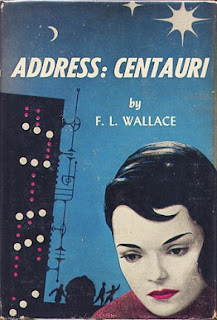The story takes place in our solar system in a future in which interplanetary travel is commonplace but interstellar travel is not yet possible. Medical knowledge has advanced to the point where everybody is healthy and beautiful. Well, almost everybody. Everybody except for the Accidentals.
The Accidentals are people so grievously injured in accidents that the damage cannot be repaired. They can be kept alive but their bodies cannot be fixed. Some have no arms. Some have no legs. Some have no viable digestive system and must be kept alive with constant infusions of artificial nutrients.
Seeing the Accidentals would upset people so they’re hidden away on an asteroid. The asteroid is both hospital and prison.
There is one curious thing about the Accidentals - they’re incredibly long-lived. It’s an unexpected by product of the intense medical treatment they must receive. They live for centuries.
And that has given some of the Accidentals an idea. Interstellar travel is impossible because normal people don’t live log enough to survive such journeys. But that would be no problem for the Accidentals. They apply for permission to undertake an exploratory mission to the Centauri star system but their request is denied.
They decide to steal a spaceship and go anyway.
The ringleaders are Docchi (who has no arms), Jordan (who has no longs), Anti (a woman whose body just keeps growing to the point here she cannot support her own weight) and Nona. Nona is interesting. She looks like a normal girl. She cannot hear or speak. She appears to have almost no intelligence at all. She is however incredibly good with machines. She can make computers do things that nobody knew they could do. Docchi suspects that Nona’s problem is not that she lacks intelligence, but that she has a totally different kind of intelligence.
These four Accidentals try to set off for the Centauri system. That plan is foiled, but they have an alternative plan. Nona has figured out a way to make a gravity drive work. She could turn the whole asteroid into a spaceship. Which she proceeds to do.
The Accidentals head off into deep space, in search of a new world in which they will no longer be outcasts. But the authorities on Earth are pursuing them.
It’s a decent enough plot but it’s the Accidentals who make the story interesting. A major challenge for science fiction writers is to create alien races that are genuinely alien, rather than just humans with pointy ears. Wallace does something much more interesting. He creates human characters who are totally alien to the mainstream of humanity.
The most interesting character is Nona. She can neither speak nor hear, but that’s not what makes her alien. She has severe brain damage. It is assumed that she has almost no intelligence at all. Docchi however suspects that Nona is highly intelligent but that her brain has adapted to the damage and now works in a radically different way. She has the curiosity of a kitten, but when something interests her she can solve scientific and technical problems that baffle everyone else. She loves machines, and she knows how they think. She thinks the way they do.
Maureen, another Accidental, is interesting as well. She’s too female. Her hormones are out of control. Her instincts are female instincts, taken to an extreme degree. She has to be kept away from men. She cannot be trusted anywhere near a man.
The other Accidentals are more subtly different in a psychological sense, being forced to adapt to extraordinary physical disabilities.
The novel doesn’t precisely deal with posthumanism, at least not in the sense of humans being deliberately modified to become more than human. But, purely by coincidence, the Accidentals have developed the one attribute essential to interstellar travel - extreme longevity. On Earth they are regarded as very imperfect humans. In deep space they are in effect superior humans. So I guess the book does deal with posthumanism in an oblique way.
Of course it also touches on other issues, such as the place of less-than-perfect humans in a world of perfect people.
Armchair Fiction have reissued this novel in a two-novel paperback edition, paired with If These Be Gods by Algis Budrys.


No comments:
Post a Comment